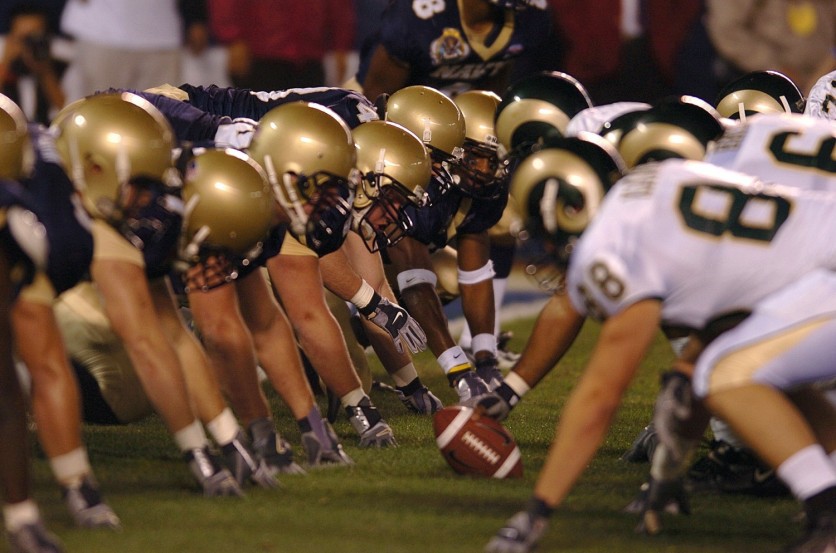In the United States, sports-related concussions affect thousands of individuals each year, like football players, who face an exceptionally high risk of head injuries that can have severe long-term effects.
In an effort to protect these athletes, a team of Stanford University scientists, in collaboration with Savior Brain, has developed an innovative solution: high-tech helmets equipped with liquid shock absorbers capable of reducing the impact of head blows by up to a third.

High-Tech Helmets With Liquid Shock Absorbers
Nicholas Cecchi, a PhD candidate at Stanford University and lead author of the study, expressed the team's commitment to promoting public brain health and concussion prevention.
He stated: "Most of the members of our team have a personal connection to traumatic brain injury, and we care deeply about ensuring long-term athlete brain health."
He added: "Concussion and repeated head impacts are still a major problem in contact sports, and we believe that improved helmet technology can play an important role in reducing the risk of brain injury."
Previous research by the Camarillo Lab at Stanford University showed that liquid shock absorbers in sports helmets could provide improved protection.
To investigate this idea further, the researchers constructed a finite element model, commonly used by engineers for simulating performance before production, of a football helmet integrating 21 liquid shock absorbers.
The prototype underwent extensive testing using simulations that followed the helmet performance evaluation protocol employed by the National Football League (NFL). It was pitted against four other helmet models, taking into account the impact of lower velocities as research has shown their potential for significant health risks.
With every impact, the team meticulously analyzed the movements of the head to calculate a score known as the Head Accelerate Response Metric (HARM).
This metric provided an assessment of how well the helmet performed during impacts. The team then utilized these kinematic measurements in a model of the head and brain to determine the level of strain experienced by the brain.
The Helmet Performance Score
The study findings showcased the effectiveness of the helmet equipped with liquid shock absorbers in reducing impact and minimizing brain strain. Out of the 36 different impact conditions tested, the liquid helmet surpassed existing models in 33 cases, exhibiting an average one-third decrease in the HARM score.
Furthermore, it achieved the highest 'Helmet Performance Score,' a critical factor in the NFL's yearly assessment of helmet safety, which evaluates the helmet's ability to protect against impacts across various areas of the head.
Particularly noteworthy is the "side upper" region of the helmet, known for its tendency to cause concussions, which experienced a 39-50% reduction in the HARM score across all impact velocities while maintaining protection in other areas.
The research team now aims to enhance the helmet model further. They plan to incorporate improvements to the facemask and chinstrap, ultimately developing a physical prototype for real-life testing.
Additionally, the researchers aspire to extend their innovative approach to other sports helmets. The team's findings were detailed in the Frontiers in Bioengineering and Biotechnology.

ⓒ 2026 TECHTIMES.com All rights reserved. Do not reproduce without permission.




